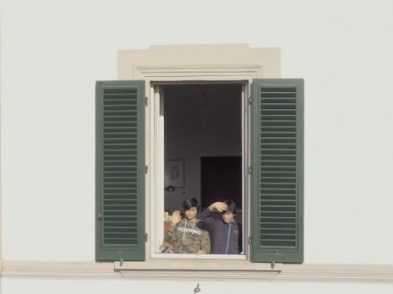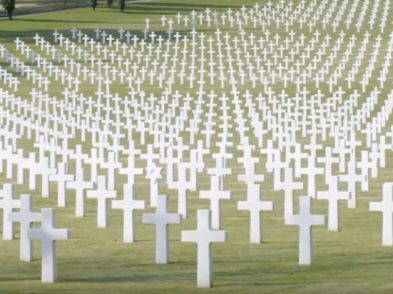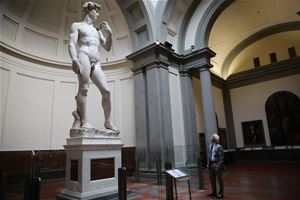When it comes to knowledge of the English language,
Nicholas Brownlees is an expert, not only because it’s his mother tongue, but
also because he has taught English in Florence for 38 years. Starting his
career as a teacher at the British Institute, Brownlees is now associate
professor at the University of Florence. He has written many books on the
language of English journalism, especially during the seventeenth century and
the English Revolution. Kirsten Hills shares her conversation with Brownlees
about the media, politics and teaching English in Florence.
Newspapers are going
through a crisis. Advertising and readership are declining as papers try to
compete with free news online. There is the continual debate over taste, like
whether scurrilous photos of the royal family should be published or not, and
the balance editors make between hard news and celebrity culture.
Brownlees knows from his research that many of these
issues have been around since the start of print media 500 years ago.
Brownlees’ recent book, The Language of Periodical News in Seventeenth
Century England (2011) can be borrowed from the libraries of the British
Institute and the Faculty of Letters here in Florence. He is currently working
on his next publication, ‘The Role of Translation in English News.’
What does he think of the modern media? Despite being
an academic, the more serious broadsheets are not necessarily Brownlees’ news
sources: ‘I also enjoy the tabloids, the ‘red-tops,’ as they’re called in the
United Kingdom. The language is clever, and the puns in the headlines
incredibly imaginative. My students are surprised to learn that the best
selling newspaper in United Kingdom isn’t the Times, but the Sun!’
When asked about the role the media plays in elections
here in Italy, Brownlees is very clear that the issues are more complex than
they appear: ‘In the UK press, there is this idea that Berlusconi is a tyrant,
but he wins elections democratically. Yes, he had some TV coverage on his side,
but a lot of very influential TV was 100 percent against him. If political
fortunes just depended on controlling TV, how can one explain the electoral
popularity of Beppe Grillo, the Italian comic now heading the Five Star
Movement. He shuns TV.’
Brownlees is positive about the media’s ability to
scrutinise government, even in Italy: ‘Yes, there is huge bias in the Italian
media, but it is reflecting what people want. Otherwise they wouldn’t buy it,
or watch it.’ He believes bias is evident in the UK and United States, too:
‘The Italian press and the media the world over usually reflect what people
want.’
Like so many expatriates in Florence, Brownlees moved
here for work. He expected to be here just a couple of years, but almost 40
years later, he has no intention of permanently returning to the United
Kingdom.
Fresh from university, the British Institute in Florence
offered him a teaching position in 1974, and after an interview in London, he
crossed Europe by train. That he did not speak a word of Italian when he
arrived here may seem a little ironic for someone who works with languages. He
is now fluent, married to an Italian and has two sons. ‘It was extremely useful
for my students who had no choice but to speak English to me! But I had a very
academic approach to learning Italian. I listened to Italian radio and TV, but
that is the wrong way to learn it, because few people speak the language like
that. I should have been more interactive.’
Despite having a strong sense of feeling ‘at home’
here, Brownlees initially had to make some big adjustments. ‘When I started
working in an Italian work environment and the university system, I had quite a
few problems. I got quite uptight about some things. Especially regarding exam
administration. Italian students must have found me quite amusing,’ he recalls.
After six years at the British Institute, he started
giving grammar lessons at the University of Florence, progressing to lectore,
ricercatore, and then professore. He is based at the languages
department in the heart of San Lorenzo.
Brownlees believes interactivity is the key to
language learning. He organises an Italian-English language exchange with the
Florence University of the Arts. ‘I tell them they could meet the man of their
lives here in Florence, too,’ he smiles.
Italian universities are quite different from their
British counterparts, where language students spend an additional year
practicing their language abroad. ‘Here, there is a more academic approach, but
I encourage my students to get out there and just start speaking.’
Italians are not known for speaking English well. ‘But
neither are English-speakers known for speaking a foreign language well,’ says
Brownlees. He blames insufficient hours in the school curriculum, and too-large
class sizes. ‘Until now, Italians didn’t really understand the need for
English, but that’s changing. We have a new generation of Italian English
teachers who are encouraging students to take languages further.’ The Italian
education ministry’s new teacher training course has seemed to help the
development of language teaching in schools, he says.
With unemployment averaging 36 percent for young
people in Italy, Brownlees believes that students have even more hunger to
learn and succeed at university. Although the length of undergraduate programs
has been reduced considerably, there is still some criticism that Italian
university students are graduating too late, and are thus less able to compete
for jobs. However, he explains, ‘Here, it is easier to get into university, it
is cheaper and now students can theoretically get their degree in three years,
but many still don’t and are entering the workplace at 25. And once they leave
university, finding full time employment is very difficult. I can understand
their frustration.’
FLORENCE
QUICKFIRE
Where would you take
a guest who doesn’t like art?
If they like
football, I’d take them to see Fiorentina. I think it’s a great experience. Or
I’d also take them walking in the hills around the city.
Favourite cappuccino?
The cafés in this
area (San Lorenzo) are good. I go to Café Birba on via San Gallo.
Best bar for an apertivo?
In Palazzo Strozzi
there is a lovely bar in a unique setting, which is where I chose to go.
Best place for bistecca fiorentina?
There are two
trattorias I like in San Lorenzo: Cafaggi and Da Mimmo.
Best day trip fuori porta?
I love walking, so I
love to go around San Casciano to see the lovely Tuscan countryside and eat
some good food.
The weirdest thing
you’ve seen here?
I saw a man cycling
with his dog balanced on the bike. It was quite remarkable.
Famous monument
you’ve still not seen?
Villa Bardini.
Favourite gelato combination?
Buontalenti and
chocolate.
Best way to keep
cool in summers?
Go to England!
Best thing to do on
a Sunday?
Sport (I play tennis)
and walking.
Favourite place to
reflect?
Walking around
Settignano.
Grappa or limoncello?
Limoncello.
Red or white wine?
Red.







